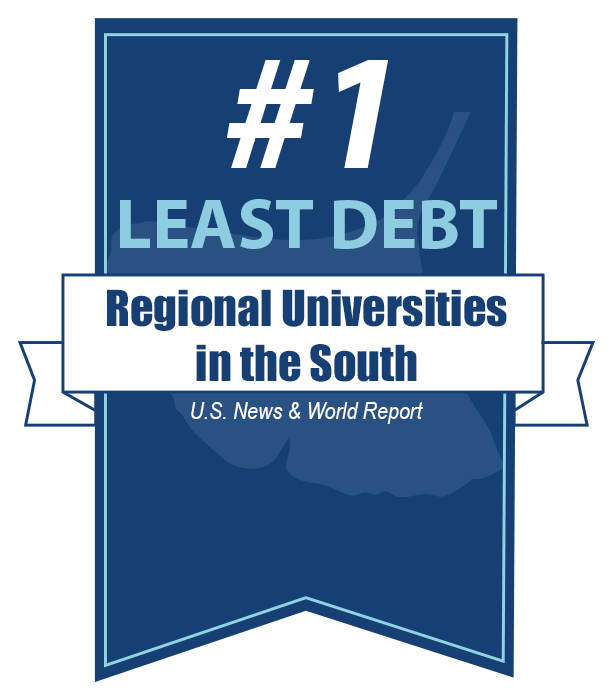Elementary Education, BS
TRANSFER STUDENT GUIDE

Cultivate. Enhance. Collaborate.
The “Educator as Reflective Decision Maker” is the model for the conceptual framework for the educator preparation programs at The W. Alongside top-notch classes, The W's Education programs include Residency courses to give you more classroom experience than any other program in the state.
Please Note
All entering freshmen and transfer Education students will begin their major as Early Childhood Development. After completing Block 2 Education courses, students who have a 3.0 GPA on the most recent prior 60 credit hours OR who have earned a 21 or higher composite ACT score OR who have completed and passed the MDE Praxis Core exam may apply to become an Elementary Education major if interested.
Suggested Course of Study for Transfer Students
Pathways
Transfer students participating in Pathways programs at certain community colleges may have a slightly different recommended course of study:
Take Your Credits to The W
Entering transfer students may bring in up to 90 credit hours of coursework toward a Bachelor of Science in Elementary Education.
Transfer students will need to complete the following professional courses at MUW in addition to any courses needed to complete the core requirements.
Junior Year
MUW Semester 1
Block 1
| ED 200 Education as a Profession+ | 3 |
| ED 302 Art and Science of Teaching* | 3 |
| ED 304 Principles of Early Childhood Learning | 3 |
| ED 306 Introduction to Special Education | 3 |
| ED 311 Elementary Residency I | 3 |
| ED 361 Early Literacy Instruction I | 3 |
| TOTAL | 18 |
MUW Semester 2
Block 2
| ED 297 Instructional Technology I | 3 |
| ED 360 Educational Psychology | 3 |
| ED 362 Early Literacy Instruction II | 3 |
| ED 365 Integrating Reading and Writing Across the Curriculum | 3 |
| ED 367 Elementary Residency II | 3 |
| ED 390 Classroom Management & Student Accommodations and Interventions | 3 |
| TOTAL | 18 |
*Critical Pathway Course - Course requires a B or above
+EDU 1613: Foundations in Education completed at a MS Community College will transfer to MUW as EDU 200: Education as a Profession.
After completing Block 2 Education courses, students who have a 3.0 GPA on the most recent prior 60 credit hours OR who have earned a 21 or higher composite ACT score OR who have completed and passed the MDE Praxis Core exam may apply to become an Elementary Education major if interested.
Senior Year
MUW Semester 3
Block 3
| ED 405 Teaching Math in Elementary & Middle Schools | 3 |
| ED 410 Teaching Social Studies in Elementary & Middle Schools | 3 |
| ED 412 Teaching Science in Elementary & Middle Schools | 3 |
| ED 434 Teaching Literature & Language in Elementary & Middle Schools | 3 |
| ED 435 Elementary Residency III | 3 |
| ED 466 Diagnosing and Assessing Reading Difficulties in Children | 3 |
| TOTAL | 18 |
MUW Semester 4
Block 4
| ED 452 Educational Measurement | 3 |
| ED 406 Teacher Internship | 9 |
| TOTAL | 12 |
Notice Regarding Repeat Coursework
Please note: Each undergraduate education student may repeat an education course or core required course once. Students who do not achieve required minimum grades after two attempts beginning August 2020 will not qualify to continue in the respective program(s) depending upon each program’s minimum grade requirement. This restriction applies to all current and new undergraduate education students either in the Early Childhood Development Major, BS or the Elementary Education Major, BS.
Making College Affordable
It's not just a tagline. We honestly believe the cost of a college education should not be a deterrent to your pursuit of earning a college degree. We were founded on the belief everyone should be able to get a college education. Year after year, The W ranks as one of the Best Value Universities. The W has kept our tuition among the lowest in the South. We offer that same low tuition to residents of every state. Plus, we have a range of scholarships and grants to help you pay for your education.

Elementary Education, BS Curriculum
This information is presented for informational purposes. In the event of a discrepancy between this page and the Undergraduate Bulletin, the Bulletin should always be used.
Education course requirements are continuously being reviewed by the Mississippi Department of Education and may change from one academic year to the next. Check with your advisor for the latest MDE requirements.
General Education Curriculum
In keeping with The W's Mission, the General Education Program provides students with the skills, knowledge, and values they need to become independent, productive members of society in our continually changing world.
The W's General Education Program provides a foundation in the liberal arts that includes knowledge in the historical, literary, aesthetic, scientific, and cultural traditions that shape the world, and fosters skills that allow students to become civically responsible life-long learners ready to adapt to new challenges.
All students who complete the Mississippi University for Women general education program will demonstrate:
- Critical Thinking
- Effective Communication
- Cultural Literacy
- Quantitative & Technology Skills
- Understanding of Self, Global Societies, & the Natural World
- Life-Long Learning
Bachelor of Science Requirements
Students pursuing a Bachelor of Science degree must complete the following courses in their academic program:
- 8 semester hours of Laboratory Science
- 3 semester hours of Mathematics MA 113 (or higher)
- 6 semester hours of Science and/or Mathematics
- 3 semester hours of additional mathematics above MA 113 or computer applications/programming course
A total of 20 hours is required, and students may not double count credit hours in the above categories.
Required Foundational Elementary Education Courses
- ED 200 - Education as a Profession
- ED 297 - Instructional Technology I
- ED 304 - Principles of Early Childhood Learning
- ED 360 - Educational Psychology
Other Core Required Courses
(Minimum grade of C or above)
- COM 101 - Oral Communication
- MA 111 - Modern Elementary Mathematics I
- MA 112 - Modern Elementary Mathematics II
- MA 113 - College Algebra or higher
Required Professional Elementary Education Courses
(Minimum grade of B or above)
- ED 302 - Art and Science of Teaching
(Minimum grade of C or above)
- ED 304 - Principles of Early Childhood Learning
- ED 405 - Teaching Mathematics in Elementary and Middle Schools
- ED 307 - Children’s Literature in Pre-K Through Grade 3 (K-3 Licensure Program only)
- ED 306 - Introduction to Special Education
- ED 361 - Early Literacy Instruction I
- ED 362 - Early Literacy Instruction II
- ED 410 - Teaching Social Studies in Elementary and Middle Schools
- ED 412 - Teaching Science in Elementary and Middle Schools
- ED 434 - Methods for Teaching Reading and Language Arts in Elementary and Middle Schools
- ED 365 - Integrating Reading and Writing Across the Curriculum
- ED 390 - Classroom Management & Student Accommodations and Interventions
- ED 311 - Elementary Residency 1 (taken with Block I courses ED 302, ED 304, ED 306, and ED 360)
- ED 367 - Elementary Residency 2 (taken with Block 2 Reading Courses: ED 361, ED 362, ED 365, and ED 466 )
- ED 435 - Elementary Residency 3
- ED 466 - Diagnosing and Assessing Reading Difficulties in Children
Additional Required Courses
(Minimum grade of C or above required for courses used for concentrations.)
- GEO 101 - Elements of World Geography
- PSY 206 - Human Growth and Development
Select Two Literature Courses (6 Semester Hours)
- EN 201 - Survey of Early English Literature
- EN 202 - Survey of Late English Literature
- EN 203 - Survey of Early American Literature
- EN 204 - Survey of Late American Literature
- EN 231 - Survey of Early World Literature
- EN 232 - Survey of Late World Literature
Select Two History Courses (6 Semester Hours)
- HIS 101 - World Civilization to 1600
- HIS 102 - World Civilization 1600 to present
- HIS 109 - US History to 1877
- HIS 110 - US History 1877 to present
- HIS 312 - Mississippi History
Professional Semester
(Minimum grade of C or above)
- ED 406 - Teacher Internship: Elementary
- ED 452 - Educational Measurement
Concentrations
For the K-6 licensure programs, all above requirements must be met. In addition, two areas of concentration must be completed, with a minimum of 18 semester hours in each area, and a minimum grade of "C" in each course. Concentrations include: English, General Science, Mathematics, and Social Studies.
For a Pre-K add-on endorsement, all above requirements must be met. Required courses: ED 307, 317, 319, and 320.
General Education-Special Subject Areas (Grades K-12 Music, Spanish, and Theatre)
Teacher Licensure is offered in the following special subject areas: BM in Music Education, BA in Spanish, and BA in Theatre Education, all with Teacher Certification requirements. For specific degree requirements, consult the Music, Spanish, and Theatre programs.
Non-Transfer of Professional Education Courses
In order for MUW to recommend licensure, ALL required professional education courses must be taken at MUW.
Notice Regarding Repeat Coursework
Please note: Each undergraduate education student may repeat an education course or core required course once. Students who do not achieve required minimum grades after two attempts beginning August 2020 will not qualify to continue in the respective program(s) depending upon each program’s minimum grade requirement. This restriction applies to all current and new undergraduate education students either in the Early Childhood Development Major, BS or the Elementary Education Major, BS.
Re-Admission
Each undergraduate education student who has previously earned MUW education coursework beginning with the ED prefix more than five years older than the most current published MUW Undergraduate Bulletin will be required to (1) retake the course(s) or (2) as an exception for this purpose may take and must pass the validation credit test corresponding to the course in question, if a validation test is available, to receive credit. Qualified students may attempt to pass a validation examination once only. Qualified students interested to learn more about validation credit should contact the School of Education's Navigator or the Education Department Chair for more information.